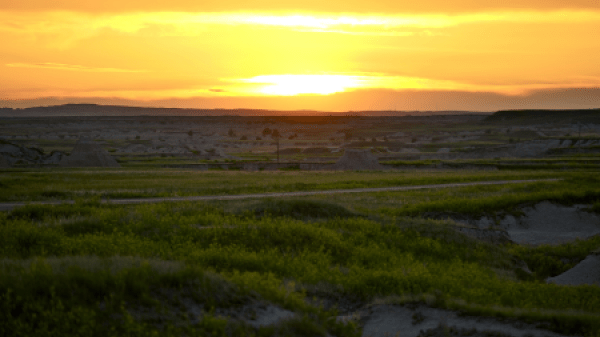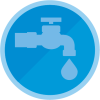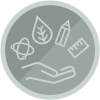NAAEE 2023 Recommended Sessions for Indigenous Peoples' Day

The collective exchange of ideas from each presenter, keynote speaker, and participate is part of what fuels how Together We Thrive at the NAAEE Annual Research Symposium and Conference. We are committed to amplifying the diversity of experiences and perspectives of Indigenous communities. Here we highlight sessions at NAAEE 2023 that center Native voices, culture, and knowledge.
Presentation recordings will be available for Research Symposium and Conference attendees through March 2024 on the event platform.
Research Symposium
On Demand Sessions
Three Sisters Agriculture and Traditional Knowledge: A Meta-Analysis
Presenter: Kristine Micheletti, Iowa State University
Description: The Three Sisters method of raising corn, beans, and squash is a sustainable practice that has been used by Indigenous Peoples for centuries. The literature on this practice has not been examined systematically. This study investigates the utility of several indicators including indigenous and colonialist perspectives regarding this growing system.
Live Virtual Sessions
Integrating Humanistic Perspectives into Environmental Sciences using the STEM Futures Framework
Thursday, October 12th, 12:30–1:45 EDT
Presenters: Kathleen Vongsathorn, Southern Illinois University Edwardsville; Sharon Locke, Southern Illinois University Edwardsville
Description: Learn about the STEM Futures framework, a course design tool for STEM that integrates three knowledge domains—foundational, humanistic, and meta-knowledge. Explore an environmental case study developed using the tool that illustrates how traditional and indigenous practices can be applied to contemporary watershed management.
Situating Black Histories and Place Relations on Kalapuya Lands
Thursday, October 12th, 4:15–5:30 EDT
Presenter: Maya Revell, University of Oregon
Description: "Liberal multiculturalism is pervasive in flattening the important historical and political differences between dissimilarly oppressed groups" (Saranilio 2015). This presentation will reflect on the productive tensions of theorizing Indigenous and Black place and land relations in the Pacific Northwest through a curriculum development project.
NAAEE Annual Conference
On Demand Sessions
Connecting to the Land and Each Other: A Reconciliation Collaboration
Presenter: Emma Ausford, Fuse Consulting Ltd.
Description: In a years-long journey, a group of non-indigenous women collaborated with local Elders to create a video about different ways of connecting to the land. The Elders’ teachings changed the project, and our relationships to each other. Learn about our mistakes, our learnings, and hear from the Elders involved.
Decolonizing Sustainability Competencies Through Connected Communities
Presenters: Erin Redman, University of Wisconsin; Kehau Kimokeo, HULIHIA Center for Sustainable Systems, UH-Maui; Meagan Jones, University of Hawaii—Maui College
Description: Through a partnership between University of Wisconsin-Stevens Point (UWSP) and University of Hawaii-Maui College (UHMC), sustainability scientists and Indigenous knowledge experts are reframing sustainability competencies through a Native lens.
Pocket Prairies and Pollinators Summer Program for Native American Youth
Presenters: Kenneth Foster, Concordia College; Sydney Stock, Concordia College Staff
Description: How can we get more pollinator gardens planted in public parks in low-income neighborhoods and use them for environmental education? This session describes a collaborative project that enabled children in three neighborhoods to plant and care for a “pocket prairie” in their local park and discusses the broader issue.
Precipitating Change with Alaskan and Hawaiian Schools: Exploring Coastal Change
Presenters: Bruce Ka'imi Watson, University of Hawai'i at Mānoa; Carolyn Staudt, Concord Consortium; David Reider, Education Design; Texas Gail Raymond, STEM Education Consultant; Noelani Puniwai, University of Hawai'i at Mānoa; Hoʻoululāhui Erika Perry, Aloha ʻĀina Education Center; Tom Moher, University of Illinois at Chicago; Lorrine A. Masterman, Yup'ik Educator and Education Consultant; Joy Massicotte, Concord Consortium; Nicollette Frank, University of Montana; Beth A Covitt, University of Montana; Dale Cope, University of Kansas at Lawrence
Description: We are a partnership bringing together Alaskan and Hawaiian schools in predominantly Native communities; local cultural knowledge holders; and a mix of Indigenous and Eurocentric scientists, educators, and researchers. Together, we’re exploring approaches and challenges to designing, implementing, and refining multi-perspective, middle school science instruction exploring coasts and coastal change.
Symphony of Change: Education for Ocean Conservation in Nigeria
Presenter: Samuel Fajana
Description: This session will highlight a conservation initiative in Ondo state, Nigeria, that uses environmental education and plastic waste recycling to solve problems of ocean conservation and marine debris. The program leverages community efforts, locally based solutions, and Indigenous knowledge.
The Ocean Data Project: Monitoring Mi'kma'ki Climate Health
Presenter: Ebony Demers, SuperNOVA at Dalhousie University
Description: SuperNOVA at Dalhousie University’s Ocean Data Project leverages the strengths of Western Science and Indigenous Knowledge to educate about the critical role of the ocean in climate change. In schools across Nova Scotia, youth ages 8-14 are empowered to understand climate change through the ocean and a sense of place.
Live Virtual Sessions
Becoming More Inclusive with Indigenous Inclusion in EE: Best Practice Learned from the Projects
Tuesday, October 17th, 9:30–10:10 EDT
Presenters: Bonnie Anderson, Project WET Coordinator, Ontario, Canada; Elena Takaki, Association of Fish & Wildlife Agencies; Julia Beck, Project WET; Larissa Juip, Michigan Tech University; Rocco Saracina, Sustainable Forestry Initiative; Yasmeen Hossain, Oregon State University
Description: Projects Learning Tree (PLT), WET and WILD have been working toward being more inclusive of indigenous perspectives, knowledge, and participation with the encouragement of ee360+ through NAAEE and EPA. We will explore lessons learned, best practices learned, and resources available to help environmental educators be more inclusive of indigenous education in their programs.
Cultivating Empathy and Excitement for Nature Through Inquiry and Storytelling
Wednesday, October 18th, 6:15–7:15 EDT
Presenter: Wil Brunner, Clean Foundation
Description: Utilizing lenses of social and environmental equity, indigenous ways of knowing, and inquiry can support young learner's empathy and passion for nature. Mapping local green spaces, sensory learning experiences, and storytelling will help bridge the gap between the classroom and the wild through shared templates and resources.
Divided Together Podcast and Indigenous Topics on the U.S.-Mexico Border
Thursday, October 19th, 11:00–11:40 EDT
Presenter: Anne Marie Tipton, Tijuana River National Estuarine Research Reserve
Description: The Divided Together podcast, developed by California's Border Field State Park, reveals topics that involve separation and unification concerning the border. It highlights the impacts the border had on the Kumeyaay and their land. Learn about how to reach a wide audience within a public agency, with Kumeyaay podcast guest.
Guest Pedagogy: Decolonizing Place-Based Education on Indigenous Lands
Thursday, October 19th, 2:30–3:10 EDT
Presenters: Clara Lima, Wells College; Ernie Olson, Wells College; Jenny Myers, Wells College
Description: Join a dialogue about the roles environmental educators can play in addressing the complex socio-ecological histories of the lands where we teach. Explore our responsibilities to move beyond a land acknowledgment and discuss efforts to decolonize place-based education and foreground Indigenous knowledge, with a focus on higher education.
Practicing Etuaptmumk: "Two Eyed Seeing" in Environmental Education
Thursday October 19th, 6:15–6:55 EDT
Presenters: Haley Guest, Clean Foundation; Stephenie Bernard, Teacher, We'koqma'q Mikmaw School
Description: Etuaptmumk, or "Two-Eyed Seeing," means to see from one eye with the strengths of Indigenous ways of knowing and from the other eye with the strengths of Western ways of knowing. In this presentation, we will share our story of working together to respectfully and meaningfully practice this in environmental education.
Learn more in "Honor, Learn, and Engage This Indigenous Peoples' Day 2023."







